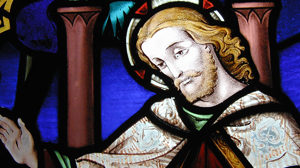Isaiah 38:1-6, 21-22, 7-8
Matthew 12:1-8
Reflection:
“Laws are made to be broken.” A statement we have all heard. Some might accept it as a universal truth, others would have serious reservations, and still others would reject it outright. Where did Jesus stand in this regard? We know that Jesus spoke in favor of the law: “Do not think that I have come to abolish the law… I have come not to abolish but to fulfill” (Mt. 5:17). Regarding tax laws Jesus said: “Give to Caesar what belongs to Caesar…” While accepting the importance of laws, Jesus also saw the need to redefine the laws. In several chapters of Matthew’s gospel, Jesus tells us, “You have heard it said…but I say to you.” Jesus invited the people listening to him to look deeper at the real meaning of a law. The law of love was not restricted to one’s neighbor and friends, but also was to include enemies.
In our gospel story today, the issue for the Pharisees is not that the disciples were taking grain from someone else’s land, but that they were “working” on the Sabbath, therefore breaking the law. Jesus turns the discussion from behavior on the Sabbath to the behavior of the Pharisees on the Sabbath. The Pharisees were being judgmental and malicious, sins not only against the Sabbath but against every day of the week. “I desire mercy, not sacrifice.”
Human need is greater than the law. In this case, hunger is greater. Jesus healed on the Sabbath because there was a greater need than strict observance of the Sabbath. Love is greater than the law.
The Lord of the Sabbath invites us to be understanding rather than judgmental, compassionate rather than harsh, merciful rather than spiteful. Love your enemy, forgive the one who has hurt you, feed the hungry, protect the weak, etc. Do this even on the Sabbath, even when it breaks the law.
Fr. Don Webber, C.P., is the director of the Office of Mission Effectiveness and resides in Chicago.

